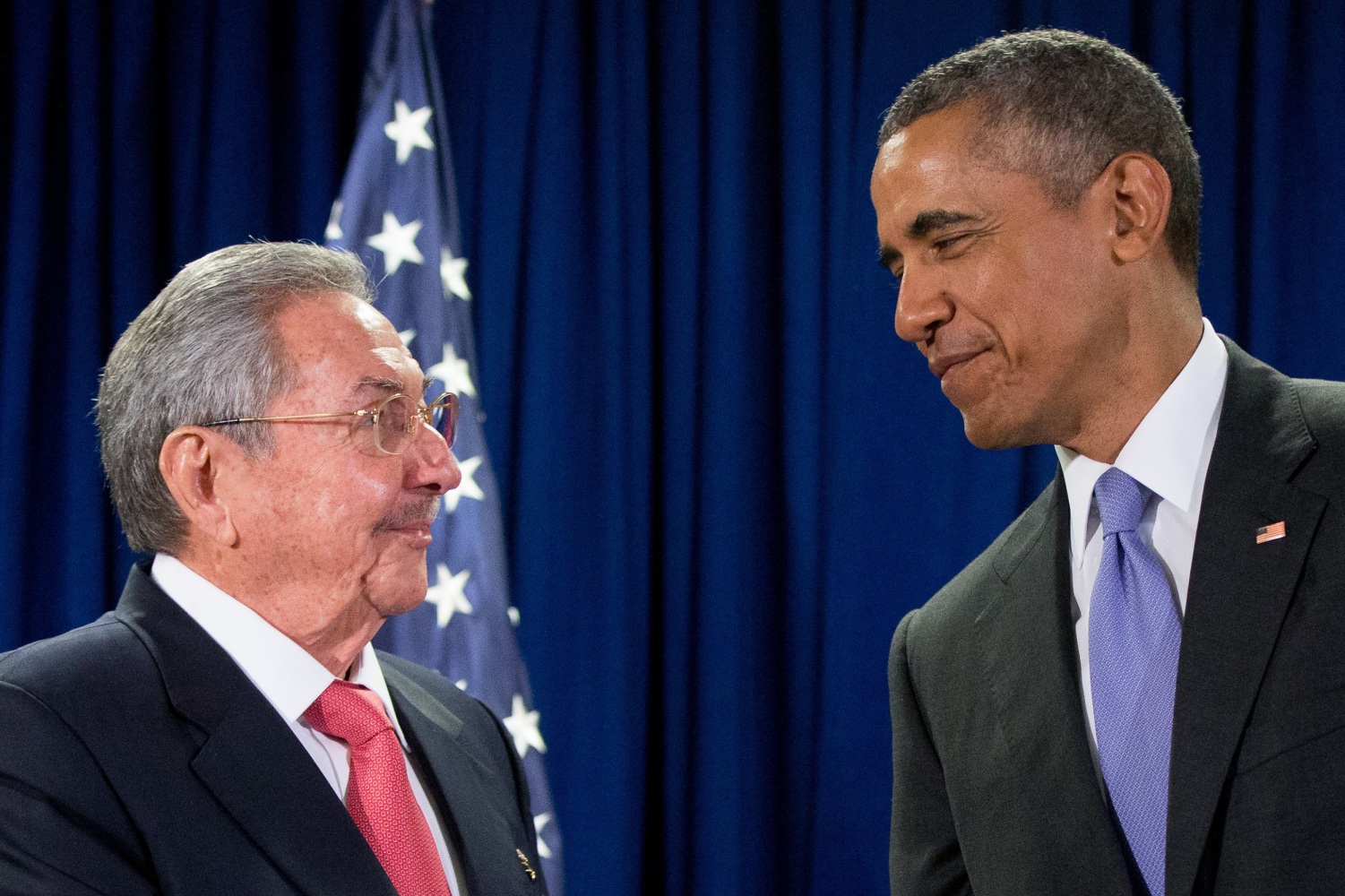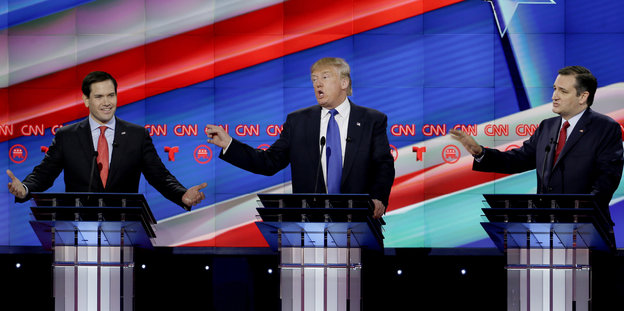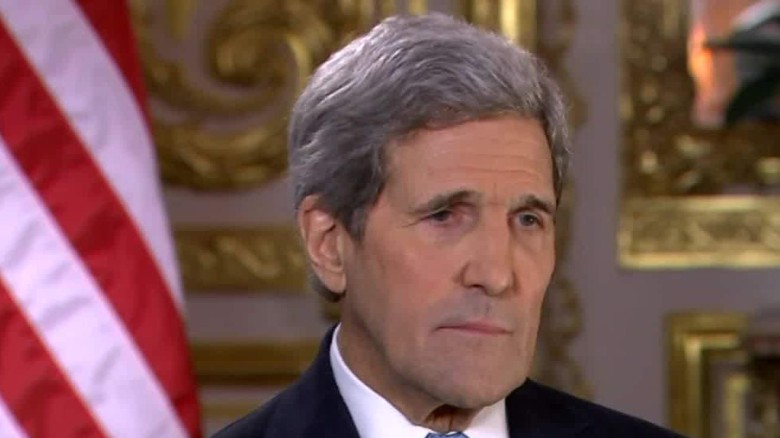
What Is the Deeper Significance of Obama’s Visit to Cuba?
(China) on 20 February 2016
by Zhang Diancheng (link to original)
As a country with significant influence in the Caribbean, Cuba has been consistently viewed by America as a thorn in its side. Obama’s announcement that he will visit Cuba has shocked the world, but even so, Obama’s diplomatic “ice-breaking trip” didn’t come about overnight. Earlier, following his inauguration in 2009, Obama gave his word that he would promote the normalization of Cuban-American relations. In 2013, Obama dispatched high-level representatives to secretly meet with Cuban officials. In 2014, Obama declared he would relax economic sanctions on Cuba, then jointly announced with Cuban leader Raul Castro that the two countries would open up talks on the restoration of diplomatic relations, while at the same time reaching an agreement on a prisoner swap. Following this, Obama met again with the Cuban leader on two separate occasions. In 2015, the U.S. Department of State announced it would remove Cuba from the list of state sponsors of terrorism, dismantling a primary obstacle to the restoration of diplomatic relations. In July of the same year, America and Cuba formally restored diplomatic relations, establishing embassies in each other’s capitals.
Regarding Obama’s visit to Cuba, a Feb. 18 opinion piece in Reuters said that if this visit comes to pass, it will be an event of historical significance, adding some additional weight to the legacy of Obama’s foreign policy. For these two long-time Cold War enemies, it will mark a historical turning point in their relationship. From the Cold War to the present day, America and Cuba have long been opponents. After the success of the 1959 Cuban Revolution, America began to adopt a hostile attitude toward Cuba. Following the Bay of Pigs incident, America and Cuba formally cut off ties with each other. On the heels of this came complete economic sanctions, dropping the temperature of the relationship between the two countries below the freezing point. Though the two countries were situated in close proximity to each other, the mutual grievances and hostility between them throughout their history could not be contained by the Caribbean Sea.
Without a doubt, America possesses the strategic initiative in this revival of Cuban-American relations. Obama’s visit to Cuba clearly has a deeper level of reasoning: In the severe chill that beset this relationship over the past several decades, America’s basic hope was that through the means of economic sanctions it could apply pressure to the Cuban government, promoting a political transformation there. According to records, we know that America’s economic blockade has caused the loss of more than $116.8 billion in Cuba. However, the loss of this gigantic sum was not enough to make Cuba give in. Within organizations representing the American region and on the international stage, Cuba never ceased to antagonize the United States, which led America to voice its displeasure. The White House statement also admitted that the 50-year policy of sanctions against Cuba never achieved expectations. At the same time, the White House also affirmed that opening up more areas of exchange with Cuba in the future was much more in line with American interests.
This is most definitely true, for the Cuban question has for a long time been a barrier to the United States’ relations with Latin America. To say that it has impaired the United States’ right to lead in its affairs on the American continent is not an exaggeration. For many years, Latin American countries have strongly requested that the United States alter its hostile policy toward Cuba. And in the period since America and Cuba have once again formally established relations, traces of a warming in relations between the United States and Latin American countries are already quite apparent. In the shadow of this, Obama has a mind to use the demonstrative effects of his visit to Cuba as a means to enlarge his diplomatic offensive among the Latin American countries. This will be beneficial to the restoration and re-establishment of American political authority over the Western Hemisphere.
In conjunction with this, Americans of all walks of life have demanded that their government improve its relations with Cuba. Especially relevant is the change in attitude among the nearly 1.5 million Cuban-Americans. With regard to whether or not America and Cuba should restore diplomatic relations, a survey taken by an American college has shown that more than 68 percent of respondents supported such a move. According to the same survey taken by the college in 1993, these numbers have undergone a phenomenal change. Back then, more than 80 percent of Cuban-Americans stated they were willing to see America carry out sanctions and a blockade against Cuba. One of America’s largest groups of Latin Americans, the Cuban-American population has the most political influence. This forces Obama to pay attention to their feelings and concerns. In addition to this, the continued warming of Cuban-American relations will aid America in removing the influence of foreign powers in Latin America. This is certainly one of the most important motivations for Obama’s visit to Cuba.
If Obama is able to fulfill his hope of visiting Cuba before the end of his term in office, the move will not only be helpful to his immigration reform, it will also attract more votes from Latin American voters for the Democratic Party. This will greatly raise his political reputation and play a part in the creation of Obama’s presidential foreign policy legacy. However, the improvement of relations between Cuba and America still faces several obstacles and challenges. Everyone knows that the desire to transform Cuba into a democratic country is wishful thinking, but this has consistently been the ultimate objective. Many United States representatives still oppose lifting the embargo on grounds of the condition of human rights in Cuba, yet lifting the embargo is Cuba’s primary goal in the restoration of relations with the United States. Thus both sides have some major differences in what they are essentially demanding. Yet Cuba will not idly allow the principle of internal affairs to become a bargaining chip.
In regard to this, the government of Cuba has explicitly declared that Obama is welcome to visit Cuba, but America ought not to interfere with Cuba’s internal affairs. Thus, the answer to whether or not Obama’s visit to Cuba will truly lead to a thaw in relations must wait until the actual moment. In the wake of the imminent change of residents of the White House, the Obama presidency’s foreign policy of improving relations between America and Cuba may in the future appear very likely to have been short-lived.


